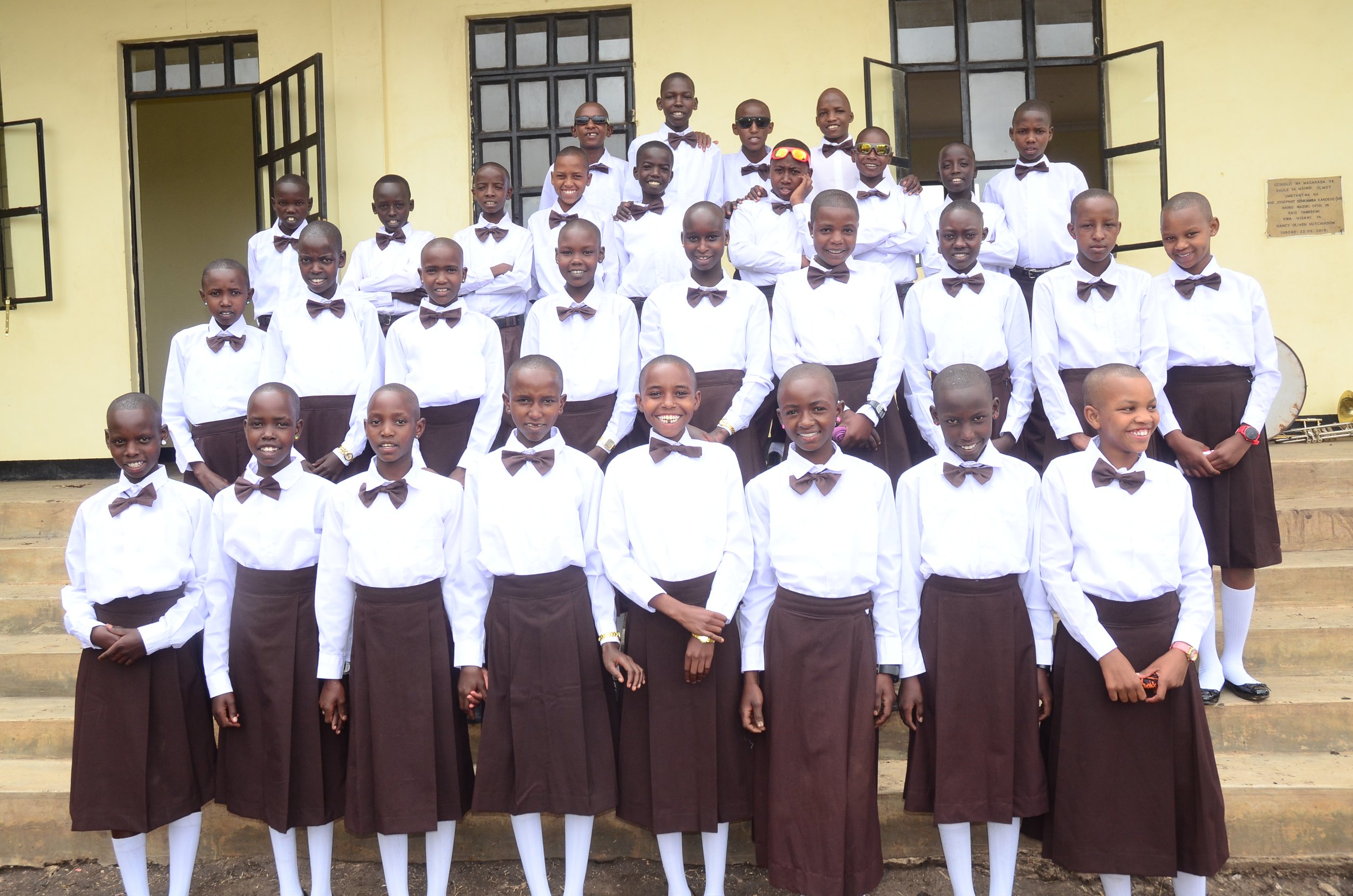From the seed of an idea to a mighty tree
Once in a while, an idea takes root that winds up having long-term effects beyond our wildest dreams. For me, that idea was the notion to accept Olmoti midwife YAYA’s challenge to help reduce the mortality rates for pregnant women and their babies in a remote area of Tanzania, where there were no medical facilities for many miles.
(If you’re a friend of Olmoti Clinic, you are familiar with our story, and if you’ve forgotten some of that story, you can refresh your memory here.)
But recently I’ve become aware that, after 13 years of support—building classrooms for 663 elementary students, building and staffing an award-winning health center, funding projects like fresh water, solar power, vaccinations, and much more, the village has grown, matured and taken ownership in ways we never could have anticipated.
A major shift is underway.
While still preserving the ancient Maasai customs and values, the villagers have successfully weathered a series of obstacles and learned some essential new skills in the process. Let me tell you some exciting news that reassures me that the residents of Olmoti are now better prepared to come together and participate in solutions to life’s problems than they’ve ever been before.
1. Meet our first elementary school graduating class!
Olmoti School’s first graduating class of 7th graders proudly poses to mark the historic day. The entire village came together to celebrate their achievement with a feast, music, dance, speeches, cake, and more. Funds from donations and Olmoti Safari make sure that any student who passes their secondary school tests will be able to afford the cost of books, bedding, supplies, and sundries at secondary school. With this kind of community support, these children are off to a great start in life.
2. Women are making money for the first time in their lives
The women of Olmoti are dynamos. In past communications I’ve told you about their sewing projects, raising chickens, making soap, and other enterprises. AND NOW they’re forming women’s groups, meeting with organizers under the Learning Tree and beginning to invest in micro-loans to earn interest and acquire low-interest loans to fund their growing enterprises. As they gain confidence in their ability to acquire new entrepreneurial skills, the Olmoti women are envisioning a brighter future for themselves and their children.
3. Men are exploring important new roles
The Maasai have long embraced animal husbandry over crop growing, but last year's drought brought the death of many animals and threatened their traditional way of life. We were able to supplement the villager’s diet with dried maize, which helped them survive the famine, but the need for a more reliable food source became evident. With the help of agricultural consultants, the men are learning about more sustainable livestock practices and have prepared fenced growing beds near the village planted with food crops. In addition, the warriors have formed their own investment groups and are enthusiastically embracing these new economic opportunities.
The men have also started a local market at a nearby crossroad to sell items to surrounding villages. People come from miles around because the prices are quite reasonable.
4. The health and economy of Olmoti are improving.
I recently met with the women in the house they built for their projects. They showed off their growing sewing skills and asked for some more machines, as more women were showing an interest in learning this new enterprise. These are simple treadle machines—nothing fancy—but now they can sew school uniforms, sanitary pads, and other essential items.
New initiatives and changing attitudes are helping improve the health and economic outlook for all. A village-wide program to pay women to install smokeless cook stoves has improved air quality and greatly reduced the need to chop and carry large quantities of wood for open pit fires. In addition, a newly launched solar light project for the huts will provide children with enough light to read after dark.
You can feel the energy and optimism in the air as people find their purpose, set new goals, and discover new ways to work together. Everyone is still struggling financially…don’t get me wrong…and raising cattle, goats, and sheep is still the primary way to make a living…but things are moving in exciting new directions.
What has changed?
I believe a paradigm shift is beginning, from survival mode into growth mode. From full-on patriarchy to empowering women. All of you who have contributed to the ongoing costs of the school and health center, playground, water projects, and more have helped bring about this change.
Now that physiological needs for water, shelter, clothing, basic healthcare and safety are being met, the villagers can look forward, valuing their strength, independence, and self-actualization. The residents’ pride in these early accomplishment are evident in their posture and on their faces, as these photos demonstrate.
Please don’t think for a moment that our work is over. There will always be funds to match, projects to get off the ground, teachers to house, school and medical supplies to buy, and a million other things that we continue to juggle every day. However I am beyond delighted to report to you that the sustained efforts we have invested in the community are beginning to result in greater initiative and tangible examples of independence and innovation.
As I close this newsletter, I ask for three things from you.
1. Please follow us on Instagram and Facebook AND share some of our posts with your friends. It’s important that we build our following so more people hear about our projects and are inspired to help support our (your) efforts. This costs nothing…if everyone on our newsletter list shared just one of our posts per week, we could take a major leap forward with our communications efforts.
2. Please plan to join us on an Olmoti Safari in 2024 or, if this isn’t the year for you, share our itinerary with people you know. Next year, we’re adding two days to the safari so attendees can customize their experience and have more time to truly experience the beauty of Tanzania and the Maasai who live in our village.
3. We are developing a WISH LIST of concrete items that help our residents learn and grow and will publish it in the months ahead. We hope you will find an item or two you would like to donate…everything from a sack of maize to a packet of school supplies to a new sewing machine will be put to good use and heartily appreciated.






